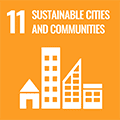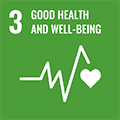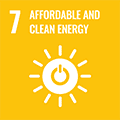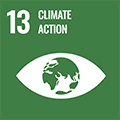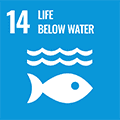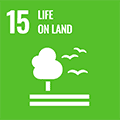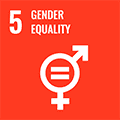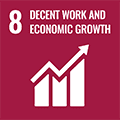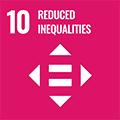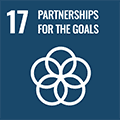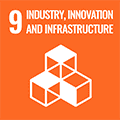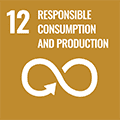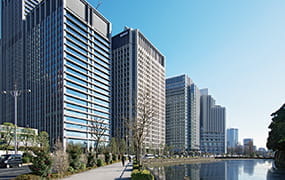Mitsubishi Estate Group 2030 Goals for SDGs
Mitsubishi Estate Group 2030 Goals for SDGs
MITSUBISHI ESTATE GROUP 2030 GOALS FOR SDGs
In Long-Term Management Plan 2030, the Mitsubishi Estate Group declared its aim to address current and emerging social issues through its business activities under management targets focused on strategies for increasing both social and shareholder value to realize a sustainable society. Efforts toward this goal began in 2018 with the formation of a Groupwide working group, which anticipated changes in the Group’s operating environment to identify seven material issues. Based on these issues, we established the Mitsubishi Estate Group 2030 Goals for the SDGs, which set out four key themes as the social issues that the Group must focus on in particular. At the same time, we established Mitsubishi Estate Group Sustainability Vision 2050 (Be the Ecosystem Engineers) with a title expressing the Group’s vision for realizing a sustainable society based on a long-term outlook essential for urban development. We have positioned the Mitsubishi Estate Group 2030 Goals for the SDGs as a milestone establishing specific themes and actions for realizing our 2050 vision. The Mitsubishi Estate Group will aim to achieve ongoing growth and create a truly meaningful society through sincere efforts to address social issues.
Material Issues for the Mitsubishi Estate Group
(Key areas to
pursue in sustainability management)
Environment
Globality
Community
Diversity
Declining Birthrate
and Aging
PopulationLeveraging Existing
PropertiesDigital Innovation
Four Key Themes of
Mitsubishi Estate Group 2030 Goals for SDGs
Sustainable urban development that proactively addresses climate change and environmental issues
Targets and KPIs
GHG Emissions Reduction Targets
(revision in March 2022)
Targets approved by the SBT initiative in June 2022

- Reduce Scope 1 + 2 by 70% or more and Scope 3 by 50% or more by fiscal 2030 compared to fiscal 2019 emissions
- Achieve net-zero emissions by 2050 (reduce Scope 1, 2, and 3 by 90% or more. Neutralize residual emissions*)
- Emissions that remain unabated within the value chain in the target year are termed “residual emissions.” The SBTi standard requires neutralizing any residual emissions using forest absorption and carbon removal technologies outside the value chain to counterbalance the impact of these unabated emissions and to achieve net-zero emissions.
Renewable Energy Rate Target (revision in March
2022)
Joined RE100

- Achieve 100% group-wide by fiscal 2025
Promote waste recycling and reduction of emissions focusing on food and plastic items
Waste recycling rate
in 2030
90%
Waste disposal
by 2030
20% reduction
(compared to FY2019, per m²)
- Promote sustainable timber use
Urban development that responds to lifestyle and human resources trends and facilitates active participation for all
Targets
- Strengthen hospitality and realize stress-free cities
- Respect different lifestyles, local customs, religions, and sexual orientation
- Use timber that complies with the Sustainable Sourcing Code or equivalent and establish traceability of timber to be used in businesses
Innovative urban development that continuously renews society
Targets
- Innovate business models and maximize performance
- Support the creation of new ideas and businesses from the perspective of urban development, contribute to the growth of cities and industries
Dynamic, flexible urban development that builds disaster-resilient communities and prioritizes safety and security
Targets
- Enhance disaster preparedness to minimize functional stagnation during disasters
- Enhance BCP function through hardware measures and strengthen neighborhood communication



